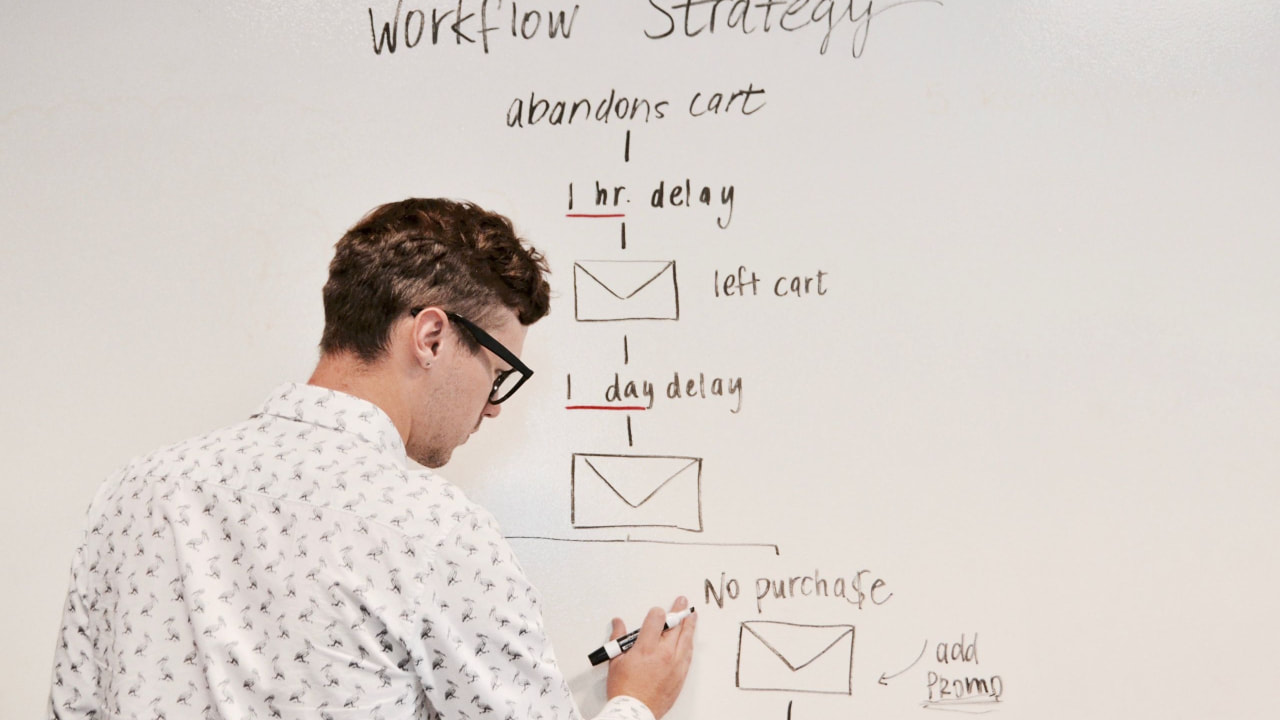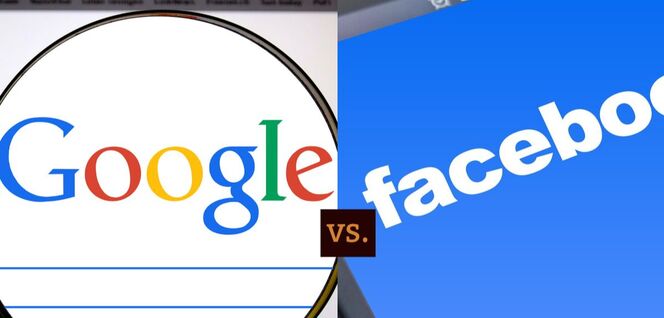|
In this blog post, we discuss the importance of lead generation strategies. If you have any questions or need any help with your lead generation strategy then get in touch. How To Generate Leads Using Lead Generation StrategiesLead generation is frequently misunderstood and under-valued when it comes to growing a business. The term “lead generation” doesn’t help as it’s not clear to many business owners and start-ups as to what exactly it means. In this blog post, we go through what a lead generation strategy is, and how you can use lead generation to increase your sales. If you would like help with your lead generation then get in touch for a free consultation to see how we can help. What Is a Lead Generation Strategy?A lead generation strategy is a marketing and sales technique used to generate leads for a product or service. It’s based on the premise that to get sales, you first need to have a number of prospects (also known as leads) that will buy from you. Finding prospects is, as the phrase goes “generating leads”. There are varying levels of leads such as cold leads (unlikely to buy or not enough information to know their situation), warm leads and hot leads (ready to buy or are certainly expressing a high level of interest in what you offer). A lead generation strategy involves a plan (and one or more sales and marketing campaigns) to generate leads. Lead generation strategies are often effective because they target people who want what you have but don't know about it yet. Lead Generation Statistics and Fast FactsBefore we get into more detail on how to generate leads, here are some quick facts to consider: - In the United States alone, there are over 50 billion dollars spent annually on lead generation. - The average cost of a qualified lead is $25. - The average conversion rate for a qualified lead is 10%. - Lead generation can be done through many different sources, such as social media and email marketing campaigns. Qualifying Your LeadsA qualified lead is one that you believe is looking to potentially buy from you. If you have 200 email addresses of people who could buy your services but no other information then these are cold - or unqualified leads. If, however, you establish contact with those people in whatever way, you can find out how serious they are about buying. Some of those leads can be removed from your list, while others can be considered as qualified leads. A lead is qualified when they meet your criteria. Make sure you have a set list of qualifications before generating leads because it will be easier to turn them down if they don't qualify than after you have invested time and effort into them. Using PPC to Generate LeadsLead generation strategies are the most effective way for companies to gain new business. There are many different ways that a company can generate leads, but one of the best is by using Pay Per Click (PPC). PPC, also known as pay-per-click advertising is a form of internet marketing that involves the advertiser paying for each click on their ad by potential. A Google Ads campaign, for example, can be used to promote a product or service when someone is actively searching for that service. A hotel in Manchester, for example, might set up a Google Ads campaign so that the advert for the hotel appears when someone searches for “hotels in Manchester”. Using Email to Generate LeadsEmail Marketing can play a critical role in the lead generation process. It can either be used to generate leads or by nurturing prospects and building up the relationship with them so that they will go from being a lead to becoming a paying customer. Lead Generation Strategies can be used to generate leads for a variety of businesses, and they are especially useful when you're just starting out because it's one of the cheapest ways to get customers quickly. Different channels for generating leadsLeads can be generated by many different channels, including sales leads from trade shows and other events, advertising campaigns (such as PPC campaigns) or public relations efforts that attract large numbers of potential customers, and even from social media marketing. Leads can also be generated through methods such as cold calling and direct mail. Cold-calling can be difficult for many businesses for various reasons and although it’s considered by many to be outdated compared to digital marketing, it can still be effective for many industries. How Much Does Lead Generation Cost?Lead generation costs are based on the type of lead that is being generated, how many leads are desired and what methods will be employed to generate them. For example, email marketing can cost as little as £1 per email and the price of each lead will depend on various factors such as the type of products or services, the industry and the channels that are used to reach the target audience. There’s no definitive answer to the question “How much does lead generation cost?”, but if you would like to know more about measuring Return on Investment (ROI) and deciding on the most effective lead generation campaign, then get in touch. We would be happy to help. The integrated approachThe ultimate lead generation strategy is one that’s tried and tested to get results and is set up as a process that’s automated as much as possible. To achieve this requires an understanding of what will work most effectively as well as an integration of marketing tools such as email marketing, landing pages for lead generation and a follow-up process for contacting hot leads.
At Think Twice Marketing, we work with businesses to set up their lead generation process. To find out more and to grab your free consultation, get in touch today. Facebook Ads can be an effective way to advertise and promote your brand to you target audience - but done badly, it can cost more than you get it sales. In this blog post, we will discuss what Facebook Ads is and how you can get the most out of advertising through Facebook. Below is a short summary video of this article. You might want to watch this first. What is Facebook Ads? Facebook Ads is a form of online advertising where businesses can promote themselves and their products. It has experienced huge growth in the past few years, but with a growing number of businesses advertising, the effectiveness of ads has become more challenging. The basic idea behind Facebook ads is that the advertiser sets up an advert with a budget to reach an audience on Facebook. The ad appears on someone's Newsfeed if they have "liked" their business page or if they have shown interest in similar products or services related to their industry. As well as advertising on Facebook, you can also promote your brand on third-party sites as well as on Instagram. Facebook Ads is an excellent way to connect with your target audience because it allows you to customise what you want your customers to see. With Facebook Ads, you can also tailor your messaging and choose who sees it by setting up a campaign with a defined target audience. You might, for example, want to target people aged 30-40 who live within 20 miles of London and have an interest in reading books, or you might target business owners in New York who have an interest in playing golf… you get the idea. You can pay for ads in various ways such as for ads that lead people to specific landing pages, or based on how many times your video has been viewed. You can also purchase ads on a cost-per-click basis or cost-per-thousand-impressions (CPM). If you would like to know more about the different ways to advertise on Facebook, get in touch with Think Twice Marketing. We would be happy to run through the various options available. Tips for Facebook Ads success Here are some quick Facebook Ads tips for making your campaign a success: Be specific with your targeting Facebook advertising is all about targeting your audience with an advert that will resonate with them based on what they like, who they are, and what they do. The more specific you are with your targeting and with your messaging, the more likely they will respond to your ad. A classic mistake many advertisers make is to target their audience too much on interests. This means that many people outside of their target audience will see the ad, leading to wasted money and less effective lead generation. Imagine you are providing services to plumbers. If you target people whose job role is “Plumber” then you are reaching the right people but, if you target people who have an interest in “plumbing” then this will include anyone who is thinking of becoming a plumber and possibly anyone who is in need of a plumber. If these incorrectly targeted people see or click on the ad then that’s wasted money spent on ads. And to make things worse, they might see the ad instead of someone who actually is a plumber! Also, use language and words that your target audience uses. The more you use your target audiences tone and words, the more likely they will resonate with your ad. Use Facebook Pixel and re-targeting Apple has introduced privacy featues that make re-targeting harder but it should still be used in your marketing. Not everyone uses an iPhone when browsing the internet and accessing Facebook and there is still a huge potential if re-targeting is done propertly. Facebook pixel is code that tracks conversions. Facebook will give you the code which you can then add to your website to track visitors. The Facebook pixel code also tracks any user behaviour related to your campaign. It can track when a user sees an advert, clicks on it, and when they take any action on the website linked to the advert. This helps to understand how effective your campaign is. It also helps with re-targeting. Re-targeting is the process of showing ads to people who have expressed interest in a company’s goods or services. Once a prospect has visited a website or clicked on an ad, they will continue to see related ads. For many people starting out in marketing, this might seem strange but it’s a highly effective way to increase conversion rates. Nowadays, every business with an online presence should have its own Facebook pixel set up for tracking and re-targeting purposes. Create a well-worded ad In terms of Facebook Ads tips, this is possibly one of the most important. A well-written Facebook Ad is essential to the success of a business. A clear and concise message is not only what catches the eye of consumers, but also what instils trust in potential buyers. Would you buy from a badly worded ad or one that has spelling mistakes? A good advertisement should also never be too complicated or too difficult to understand. It should be well worded and designed to appeal to your target audience. The most successful advertisements are those that are able to communicate specific benefits and value to their target audience. They should also have a strong call to action. Need help with your advertising? We hope you have enjoyed this blog post, full of Facebook Ads tips to grow your business. If you want to take your Facebook Ads campaign to the next level then help is available. At Think Twice Marketing, we specialise in creating Facebook and Google Ads to get you results. We work with clients to properly define the target audience and messaging so that they get the results they deserve. If you would like help to ensure that you don’t waste money on ineffective ads then get in touch today. Facebook Ads TipsWhen it comes to online advertising, it doesn't get any bigger than the two tech giants Google and Facebook. But, which one is best for advertising your business? The aim of this blog post is to discuss the pros and cons of using Facebook Ads and Google Ads (previously Google Adwords). We won't be discussing the in-depth details of the various ways you can advertise on the two platforms. Facebook Ads or Google Ads?While both platforms allow you to advertise on third party websites as sponsored ads, Google stands out in one important way - Google search. Adverts created with Facebook that appear on Facebook, Instagram and other sites can be considered to some extent as 'speculative'. Yes, you can define your target audience including their interests, their age, location etc but someone seeing the advert is less likely to be in 'buying mode'. A seller of training equipment for playing hockey might be able to target people such as 'anyone who lives within 25 miles of New York, has an interest in hockey and is aged 25-44' but that doesn't mean that person who sees the advert is interested in, or wants to buy what's on offer. They might not play hockey and only have an interest in watching it. With Google, you appear when people are actively searching for what you sell. Using the above example, a person who wants to buy a hockey stick has already made a conscious decision to find out more about the various types or is ready to buy. They are already further into the decision making sales process and are likely to search specifically for 'hockey sticks' or 'buy hockey stick'. This means you are appearing to people who are genuinely interested and are closer to buying. With Facebook you might need to reach out to more people to generate sales. That doesn't mean Facebook isn't worth considering. Is Google Ads better than Facebook Ads?Set up correctly, Google Ads can be highly effective but that doesn't make it an outright winner compared to Facebook Ads.
Facebook Ads has many advantages. It tends to be lower cost pay per click, it has access to an audience that's in the billions and there's the opportunity to educate people who may don't think they need your product... but they do. Facebook Ads, like Google, also allows you to do re-targeting so that your ad will appear when you have visited a similar website - although recent privacy changes by Apple have made this harder. If you had to decide which platform to use then it will depend on your budget, objectives and industry you are in. You may, for example, have the objective to raise awareness of your new product during a product launch and decide that Facebook is best for that. Facebook is also great for short-term promotions, allowing you to reach a lot of people in a short period of time. If you would like to know more about Google then consider our online course Getting to to the top of Google. This course covers Google Ads as well as SEO (getting found on Google without spending money on adverts). Personally, I prefer Google but that doesn't mean it will always be the right solution for your business. Consider your objectives and what you want to achieve before making a decision. You may want to use both platforms to be more effective. If you need help with online advertising, contact Think Twice Marketing. |
written byThe opinions in these blog posts are those of marketing expert and book author Darren Hignett. Categories
All
Archives
October 2022
|
|
Open 9 am - 5 pm
Tel: 07769 331 247 |






 RSS Feed
RSS Feed